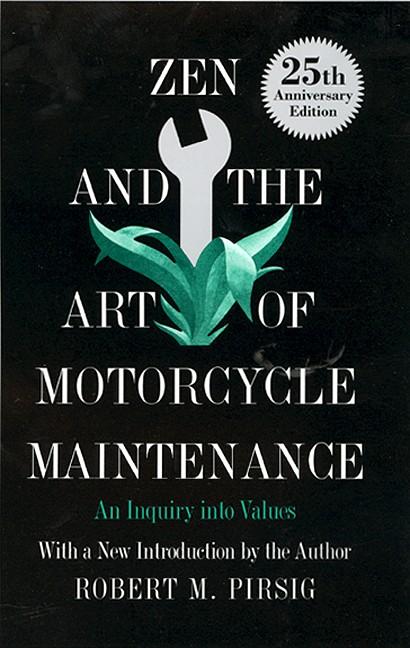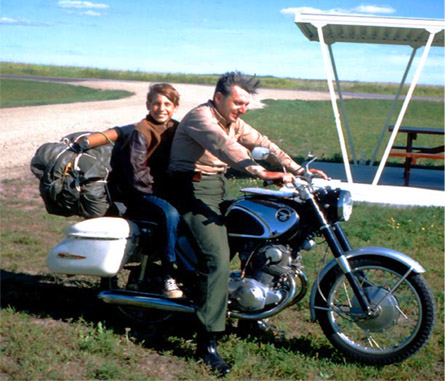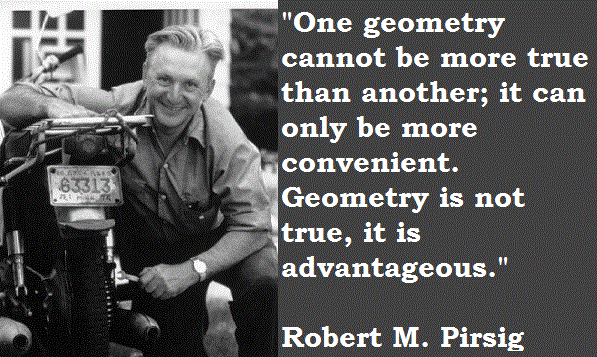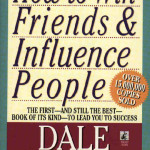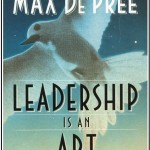“The place to improve the world is first in one’s own heart and head and hands, and then work outward from there.”
One of the most important and influential books written in the past half-century, Robert M. Pirsig’s Zen and the Art of Motorcycle Maintenance is a powerful, moving, and penetrating examination of how we live . . . and a breathtaking meditation on how to live better.
The book sold 5 million copies worldwide. It was originally rejected by 121 publishers, more than any other bestselling book, according to the Guinness Book of Records.
Here is the book that transformed a generation: an unforgettable narration of a summer motorcycle trip across America’s Northwest, undertaken by a father and his young son. A story of love and fear — of growth, discovery, and acceptance — that becomes a profound personal and philosophical odyssey into life’s fundamental questions, this uniquely exhilarating modern classic is both touching and transcendent, resonant with the myriad confusions of existence . . . and the small, essential triumphs that propel us forward. [From: Amazon.com]
“When one person suffers from a delusion, it is called insanity. When many people suffer from a delusion it is called a Religion.”
Acclaimed as one of the most exciting books in the history of American letters, this modern epic became an instant bestseller upon publication in 1974, transforming a generation and continuing to inspire millions. This 25th Anniversary Quill Edition features a new introduction by the author; important typographical changes; and a Reader’s Guide that includes discussion topics, an interview with the author, and letters and documents detailing how this extraordinary book came to be. A narration of a summer motorcycle trip undertaken by a father and his son, the book becomes a personal and philosophical odyssey into fundamental questions of how to live. The narrator’s relationship with his son leads to a powerful self-reckoning; the craft of motorcycle maintenance leads to an austerely beautiful process for reconciling science, religion, and humanism. Resonant with the confusions of existence, Zen and the Art of Motorcycle Maintenance is a touching and transcendent book of life.
[From: Barnesandnoble.com]
“The truth knocks on the door and you say, “Go away, I’m looking for the truth,” and so it goes away. Puzzling.”
In a 1974 interview with National Public Radio, Pirsig stated that the book took him four years to write. During two of these years, Pirsig continued working at his job of writing computer manuals. This caused him to fall into an unorthodox schedule, waking up very early and writing Zen from 2 a.m. until 6 a.m., then eating and going to his day job. He would sleep during his lunch break and then go to bed around 6 in the evening. Pirsig joked that his co-workers noticed that he was “a lot less perky” than everyone else.
The book describes, in first person, a 17-day journey on his motorcycle from Minnesota to Northern California by the author (though he is not identified in the book) and his son Chris. They are joined for the first nine days of the trip by close friends John and Sylvia Sutherland, with whom they part ways in Montana. The trip is punctuated by numerous philosophical discussions, referred to as ‘Chautauquas’ by the author, on topics including epistemology, ethical emotivism and the philosophy of science.
Many of these discussions are tied together by the story of the narrator’s own past self, who is referred to in the third person as Phaedrus (after Plato’s dialogue). Phaedrus, a teacher of creative and technical writing at a small college, became engrossed in the question of what defines good writing, and what in general defines good, or “Quality”. His philosophical investigations eventually drove him insane, and he was subjected to electro-convulsive therapy which permanently changed his personality.
Towards the end of the book, Phaedrus’s personality begins to re-emerge and the narrator is reconciled with his past. [From: Wikipedia.com]
“You look at where you’re going and where you are and it never makes sense, but then you look back at where you’ve been and a pattern seems to emerge.”
The New Yorker: “The book is inspired, original. . . . The analogies with Moby-Dick are patent.”
Time: “An unforgettable trip.”
Baltimore Sun: “It is filled with beauty. . .a finely made whole that seems to emanate from a very special grace.”
The Village Voice: “A miracle . . . sparkles like an electric dream.”
New York Times: “Profoundly important…full of insights into our most perplexing contemporary dilemmas.”
Time Magazine: “An unforgettable trip.”
Library Journal: Having a difficult-to-impress 11-year-old boy as a traveling companion might hamper any man’s ability to see goodness, but it was because of his son’s deteriorating mental health that Pirsig urgently needed to repair and maintain his own outlook. Their motorcycle ride from Minnesota to California, with talkative companions, was a deeply personal philosophical journey.
“We’re in such a hurry most of the time we never get much chance to talk. The result is a kind of endless day-to-day shallowness, a monotony that leaves a person wondering years later where all the time went and sorry that it’s all gone. ”
If you like this story, CLICK HERE to join the tribe of success-minded people just like you. You will love our weekly quick summaries of top stories, talks, books, movies, music and more with handy downloadable guides, cheat sheets, cliffs notes and quote books.
